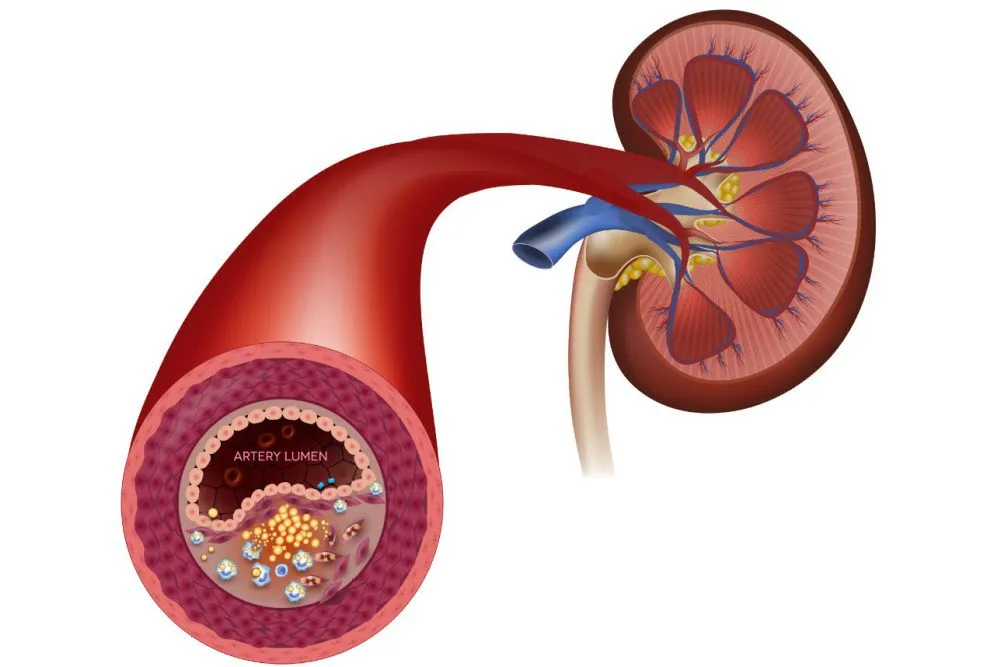Evaluation and Management of HTN
Hypertension and chronic kidney disease (CKD) are closely interlinked pathophysiologic states, such that sustained hypertension can lead to worsening kidney function and progressive decline in kidney function can conversely lead to worsening blood pressure (BP) control.
Renal hypertension puts stress and increased pressure on the kidney, and is a major cause of end-stage renal disease, also known as chronic renal disease, in the elderly. Vascular disease, also known as atherosclerosis, is prevalent in the United States, and as the population ages, the number of people with vascular disease will increase. So too will the number with renovascular hypertension and end-stage renal disease. People with end-stage renal disease require dialysis or kidney transplantation.
Renovascular hypertension should be suspected when the onset of hypertension occurs before age 30 or after age 50, or when stable hypertension becomes more difficult to control with medication. White males and blacks of both sexes are at higher risk and people over 50 are at higher risk.




